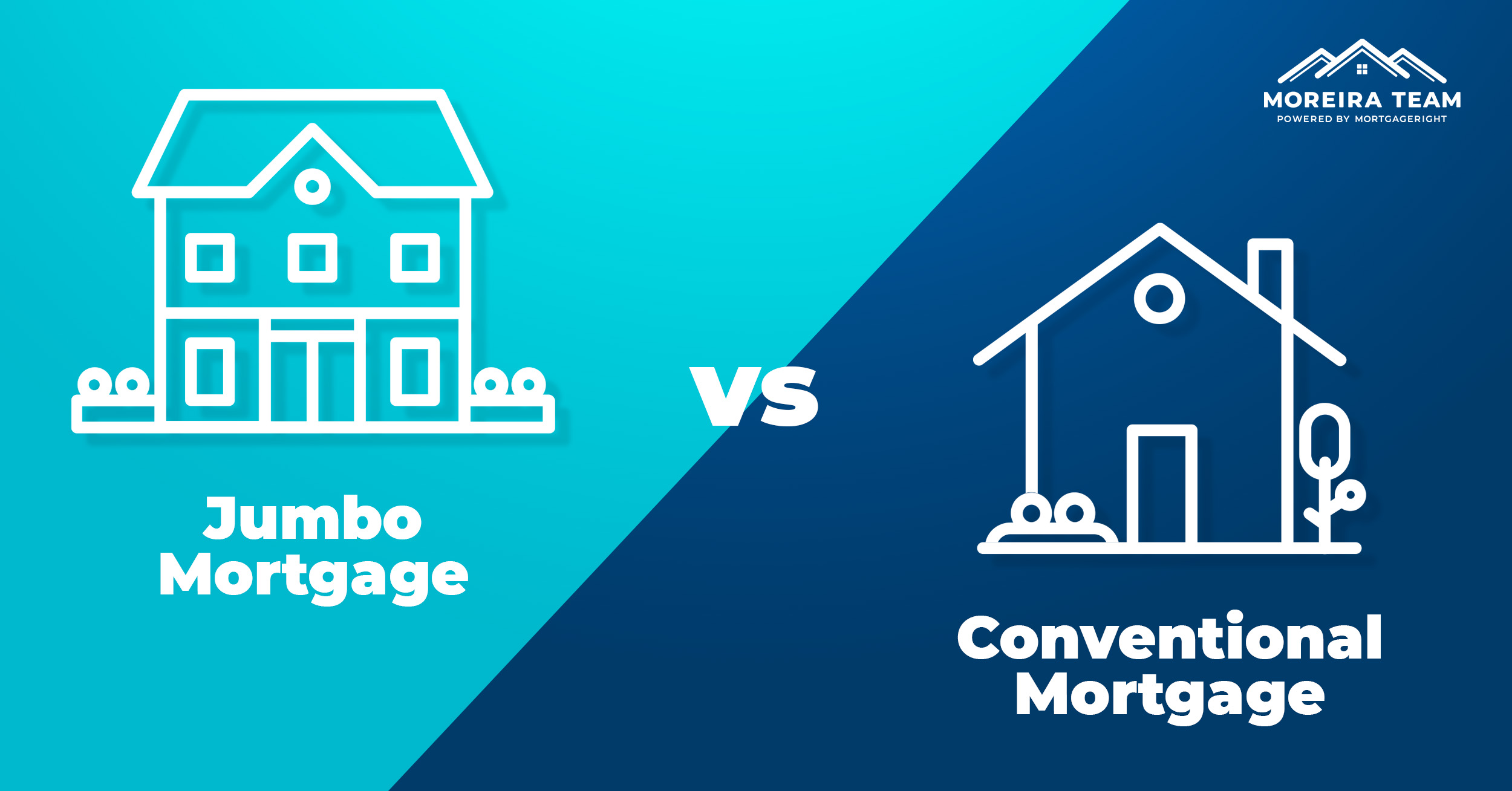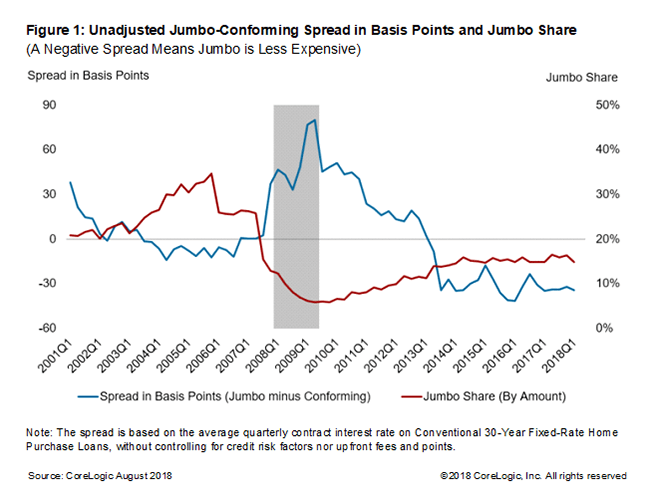Jumbo Loan: Open the Door to High-end Dealing With Specialized Mortgage Options
Jumbo Loan: Open the Door to High-end Dealing With Specialized Mortgage Options
Blog Article
Browsing the Jumbo Funding Landscape: Essential Insights for First-Time Homebuyers
Browsing the complexities of jumbo lendings presents a special set of obstacles for first-time buyers, especially in a developing real estate market. Understanding the crucial eligibility requirements and possible advantages, along with the disadvantages, is essential for making informed choices. Additionally, creating a solid monetary method can dramatically boost your leads.
Comprehending Jumbo Fundings
:max_bytes(150000):strip_icc()/dotdash-jumbo-vs-conventional-mortgages-how-they-differ-v2-75c8bd243a054517aa21385ef266c11d.jpg)
Due to the fact that jumbo lendings are not backed by government-sponsored entities, they carry various underwriting requirements and call for even more comprehensive monetary documents. This difference can result in higher rate of interest contrasted to conventional financings, provided the enhanced threat to lenders. Jumbo loans additionally use distinct advantages, such as the ability to finance higher-value homes and possibly much more versatile terms.
Novice property buyers should also know that securing a big loan usually necessitates a bigger deposit, typically ranging from 10% to 20%. Furthermore, debtors are typically anticipated to demonstrate solid credit reliability and a steady income to qualify. Comprehending these subtleties can empower new property buyers to make informed decisions when discovering jumbo funding alternatives in their pursuit of homeownership.
Qualification Needs
Protecting a big loan calls for meeting specific eligibility demands that differ considerably from those of conventional loans. Unlike traditional finances, which are usually backed by government-sponsored entities, big financings are not guaranteed or assured, causing stricter standards.
In addition, debtors need to demonstrate a robust financial profile, which consists of a reduced debt-to-income (DTI) ratio, generally no greater than 43%. This makes sure that debtors can manage their monthly repayments together with various other economic obligations.
In addition, most lenders need substantial paperwork, consisting of proof of revenue, property statements, and income tax return for the past 2 years. A substantial down payment is likewise essential; while standard loans may allow down payments as low as 3%, big lendings typically require at the very least 20%, relying on the loan and the lending institution quantity.

Advantages of Jumbo Lendings
For many first-time property buyers, jumbo fundings provide distinct benefits that can facilitate the journey towards homeownership. One of the main advantages is the capacity to finance residential properties that exceed the conforming lending restrictions set by government-sponsored entities. This adaptability enables customers to access a bigger series of high-value homes in affordable realty markets.
Furthermore, jumbo lendings usually include attractive rates of interest site here that can be less than those of typical car loans, particularly for borrowers with strong credit report accounts. This can cause substantial cost savings over the life of the financing, making homeownership a lot more inexpensive. Big financings usually permit for higher loan amounts without the demand for private home loan insurance coverage (PMI), which can additionally lower monthly payments and overall prices.

Potential Drawbacks
Many potential homebuyers might discover that big financings featured considerable downsides that warrant mindful consideration. Among the key concerns is the rigid credentials standards. Unlike adjusting lendings, big lendings usually require greater credit rating, usually surpassing 700, and considerable revenue paperwork, making them less obtainable for some debtors.
Furthermore, jumbo lendings generally feature higher interest prices contrasted to conventional financings, which can result in increased regular monthly repayments and overall loaning prices. This costs might be particularly burdensome for new buyers that are currently navigating the monetary complexities of purchasing a home.
One more notable downside is the larger down settlement need. Numerous lenders anticipate a minimum deposit of 20% or even more, pop over here which can pose a difficulty for customers with limited cost savings. The lack of government backing for jumbo car loans leads to much less positive terms and problems, boosting the danger for loan providers and, as a result, the borrowing costs for homeowners.
Lastly, market variations can dramatically impact the resale value of high-end buildings funded with jumbo fundings, adding an element of economic unpredictability that first-time buyers might find challenging.
Tips for First-Time Homebuyers
Navigating the complexities of the homebuying process can be frustrating for newbie customers, specifically when considering jumbo car loans (jumbo loan). To simplify this journey, adhering to some essential methods can make a considerable distinction
First, inform on your own on jumbo fundings and their certain demands. Comprehend the various loaning requirements, including credit rating, debt-to-income proportions, and down settlement assumptions. Normally, a minimal credit report of 700 and a down repayment of at least 20% are necessary for authorization.
Second, engage with a knowledgeable home mortgage expert. They can supply insights customized to your economic circumstance and help you browse the details of the jumbo loan landscape.
Third, take into consideration pre-approval to enhance your buying position. A pre-approval letter signals to vendors that you are a major buyer, which can be useful in open markets.
Last but not least, do not forget the importance of budgeting. Element in all costs connected with homeownership, consisting of real estate tax, upkeep, and homeowners' insurance. By following these tips, first-time buyers can approach the jumbo lending process with greater self-confidence and quality, improving their possibilities of successful homeownership.
Final Thought
In conclusion, browsing the big finance landscape requires an extensive understanding of eligibility criteria, advantages, and potential downsides. Ultimately, detailed preparation and education and learning regarding big lendings can lead to even more informed decision-making in the homebuying you could look here procedure.
When browsing the complexities of the housing market, understanding jumbo finances is essential for new homebuyers aiming for residential or commercial properties that surpass standard car loan restrictions. Big car loans are non-conforming financings that generally surpass the conforming loan limit set by the Federal Real Estate Money Firm (FHFA)Additionally, jumbo fundings usually come with attractive interest rates that can be lower than those of traditional finances, particularly for borrowers with solid credit profiles. Jumbo car loans usually enable for greater finance quantities without the demand for exclusive home mortgage insurance policy (PMI), which can better lower monthly settlements and overall costs.
Unlike adjusting financings, big finances commonly call for greater credit score ratings, often going beyond 700, and considerable income paperwork, making them less available for some consumers.
Report this page